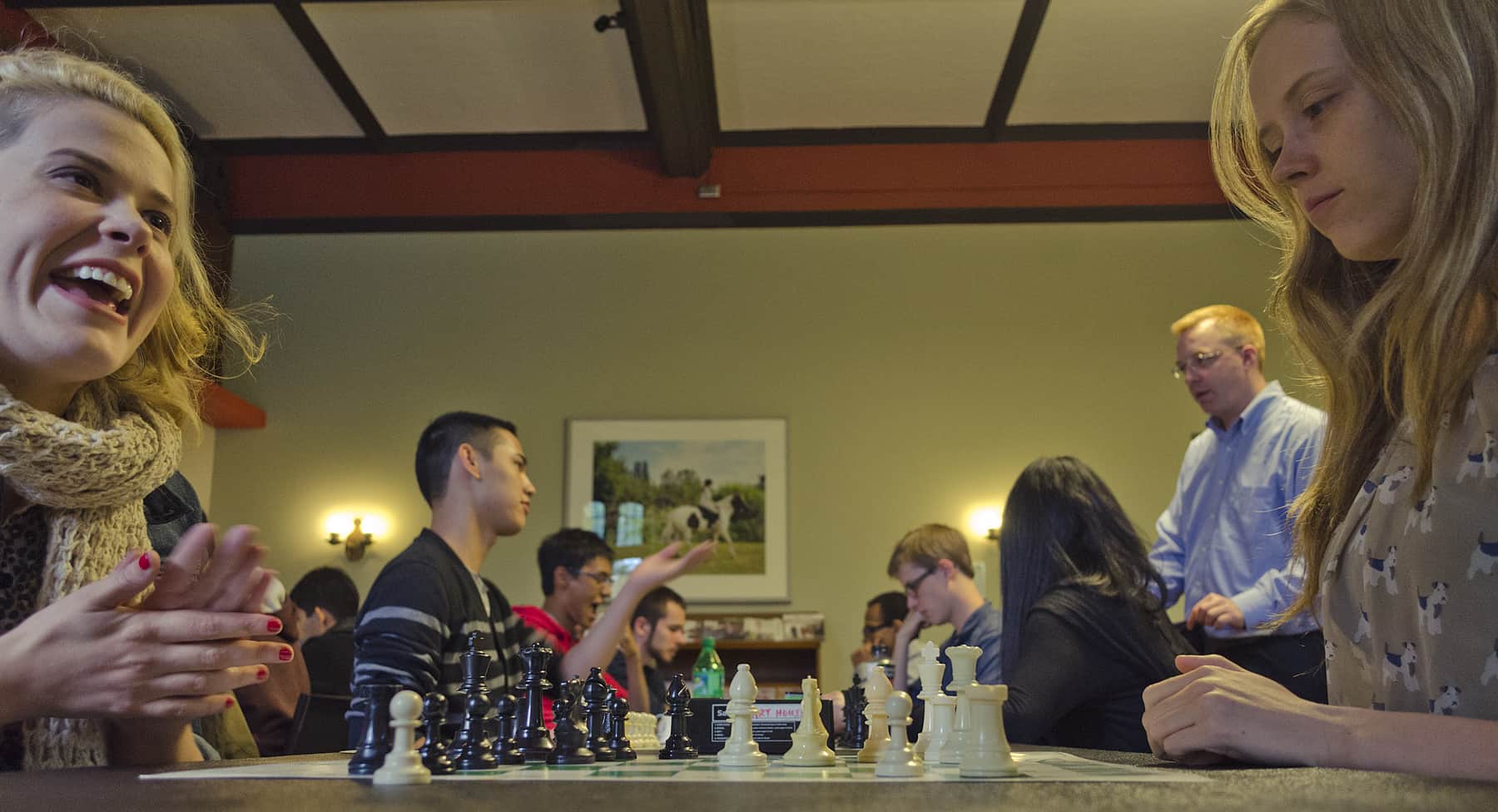During the clamor of Clubs Fair, it’s difficult to focus on any one group, as an endless mass of enthusiastic faces throw flyers, free pens, and sign-up sheets into your arms. Navigating the Ulife directory of clubs online is a similar undertaking, presenting an overwhelming variety of groups to explore. The Aquarium Club meets to “discuss the hobby of fish keeping.” The Yo-Yo Club gathers monthly to hone its members’ skills, while the Writers of Controversial Philosophy debate and discuss at the Mississauga campus. “We ParTea” meets to drink and discuss tea, aiming to spread awareness of tea around campus. Although confusing to navigate, U of T’s variety of clubs is an excess of riches that satisfy every niche of our diverse student body — and when they don’t, there are ample ways to start one up to fill the gap.
Everyone has quirky passions and interests, and while those may seem to set people apart from one another, the diversity of the U of T student population allows for the growth of niche communities with similar interests through clubs. In spite of their great variation, U of T’s clubs collectively bring students together and create small, warm collectives within the university.
Hart House Chess Club
 The Hart House Chess Club was established in 1895, beginning as a small but skilled group of mostly male chess players. This year, however, the majority of executive members are women — an especially significant feat considering that, prior to the year 2000, there were no women in any Hart House chess tournaments. President Sanja Vukosavljevic notes that the club is now decidedly inclusive, although they are often quite boisterous — constantly laughing and trash-talking one another. She adds that: “there are more chess variations than atoms in the earth,” giving players plenty of reasons to criticize and analyze one another throughout the game. This also means that there is always a lot left to learn for beginners and experts alike.
The Hart House Chess Club was established in 1895, beginning as a small but skilled group of mostly male chess players. This year, however, the majority of executive members are women — an especially significant feat considering that, prior to the year 2000, there were no women in any Hart House chess tournaments. President Sanja Vukosavljevic notes that the club is now decidedly inclusive, although they are often quite boisterous — constantly laughing and trash-talking one another. She adds that: “there are more chess variations than atoms in the earth,” giving players plenty of reasons to criticize and analyze one another throughout the game. This also means that there is always a lot left to learn for beginners and experts alike.

The club meets from 4:00–11:00 pm on Friday nights — a slot reserved for partying for many students. Nonetheless, Vukosavljevic contends without hesitation: “Honestly, I have more fun at the chess club. It’s the best part of my week.”
U of T Naginata Club (UTNC)
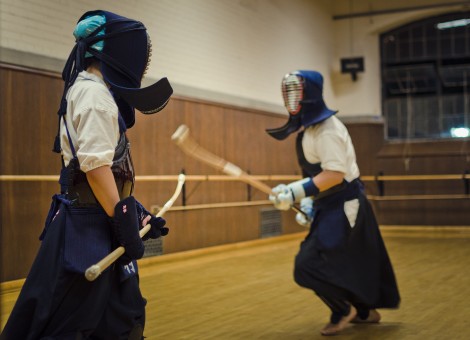
Before joining the club, president Tomas Almonte had a negative impression of the practice because of how useless Naginata swords were designed to be in his favourite video games. Before I met Almonte, I had absolutely no idea what a Naginata sword was. Both of these forms of ignorance about Naginata are quite common, Almonte explains. Many of the club’s members had never tried the martial art prior to joining, he among them: “I had my Star Wars phase, but never actually used a sword until I joined Naginata.” He was compelled to continue attending practices by the emphasis on teamwork.
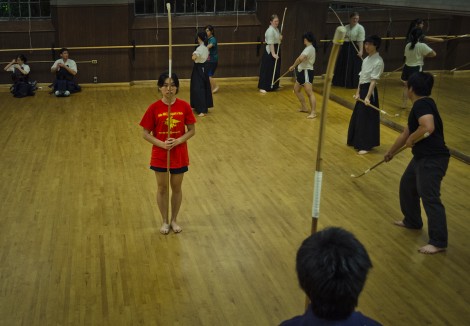
Naginata consists of “choreographed encounters,” making it a discipline that is only possible to practice with others. As a result of the necessity of teamwork, members of the club are very social with one another. The club hosts events outside of practice, like karaoke nights, to confront the pleasant problem of too much chatting among friends that has become disruptive in practices.
Fly with Origami, Learn to Dream (FOLD)
 The FOLD office at 21 Sussex is whimsically decorated with an abundance of paper ornaments. Colourful cranes, flowers, and Angry Birds origami projects fill the room, while even more spill out of full storage boxes on the floor. “We’ve been raffling these off regularly, and we still need more space in here,” comments FOLD president Qingda Hu. In addition to these lotteries, the club also donates a lot of their projects to hospitals in the area. Off-campus volunteer projects have always been a facet of FOLD, which has also participated in teaching origami at Sick Kids and Relay For Life.
The FOLD office at 21 Sussex is whimsically decorated with an abundance of paper ornaments. Colourful cranes, flowers, and Angry Birds origami projects fill the room, while even more spill out of full storage boxes on the floor. “We’ve been raffling these off regularly, and we still need more space in here,” comments FOLD president Qingda Hu. In addition to these lotteries, the club also donates a lot of their projects to hospitals in the area. Off-campus volunteer projects have always been a facet of FOLD, which has also participated in teaching origami at Sick Kids and Relay For Life.
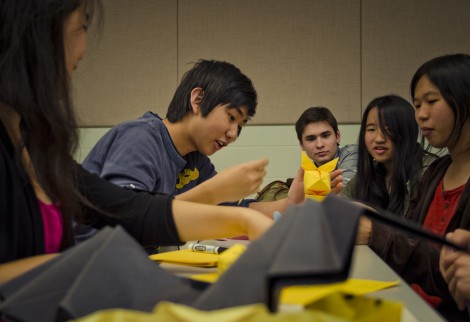
In addition to the joy that comes with a finished origami product, the act of learning to fold is relaxing and enjoyable, with an emphasis on thinking geometrically and following instructions closely. Teaching others how to fold origami requires a measure of skill, but proves very rewarding for the club’s students.
African Cuisine Club (The Afriks)
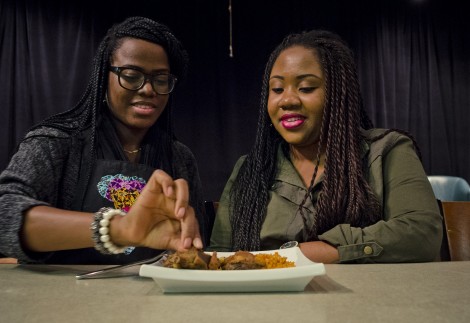
When Sandrine Uwimana and Taiwo Idris came to U of T from Rwanda and Nigeria, respectively, they had the idea to publish an African Cuisine cookbook. They started writing down recipes and established an on-campus club dedicated to planning, shopping, and cooking their favourite dishes in 2011. The two take turns teaching different western and eastern styles of cooking, and sessions are often thematically focused on one African country. Sandrine notes that the club’s most treasured dishes are its plantains, soft but crunchy sweet potato cookies, and spicy vegetarian stews. The group now aims to get fresh, healthy dishes into the campus dining halls at affordable prices.
Uwimana and Idris are particular about their idea of “fresh”— refusing to cook with ingredients that haven’t been purchased that same day. The two refuse to discuss the difference between plantains and bananas, insisting that it must be experienced rather than described.
Astronomy and Space Exploration Society (ASX)
 You don’t need to know a lot about astronomy and space exploration to join ASX, nor should you expect to spend meetings lying in the grass and staring at the sky. Although, says new member Zack Zajac with a smile, “I do that anyways, multiple times a day.” Ammar Javed, the president of ASX, envisions making the potentially intimidating subject of astronomy accessible to students of all backgrounds, noting that astronoomy is essentially, “…the study of everything.”
You don’t need to know a lot about astronomy and space exploration to join ASX, nor should you expect to spend meetings lying in the grass and staring at the sky. Although, says new member Zack Zajac with a smile, “I do that anyways, multiple times a day.” Ammar Javed, the president of ASX, envisions making the potentially intimidating subject of astronomy accessible to students of all backgrounds, noting that astronoomy is essentially, “…the study of everything.”

Starry-eyed students learn about life beyond Earth, the environment on Mars, and contact with outer space. These quite romantic practices inspire some high-quality pick-up lines, as Javed adds that there is nothing that sweeps someone off their feet like learning astronomy under the stars.
U of T Beekeeping Education Enthusiast Society (BEES)
 Cute is not the adjective most students would associate with bees, but Theresa Reichlin, secretary of BEES, gushes: “I love bees! They’re just so cute.” The term “enthusiast” is used quite literally in the title of U of T’s beekeeping club, which is made up of students who are truly passionate about bees. Pointing out that bees, unlike wasps, are not dangerous, Reichlin hands me a full-on protective suit and instructed me to climb onto the roof of Trinity College to observe the group’s beloved bees. Ironically, many of the club’s executive members have suffered childhood traumas involving bee stings. Being a part of the club has not only helped members to get over their fears, but has made them appreciate the measures that bees take to protect their hives.
Cute is not the adjective most students would associate with bees, but Theresa Reichlin, secretary of BEES, gushes: “I love bees! They’re just so cute.” The term “enthusiast” is used quite literally in the title of U of T’s beekeeping club, which is made up of students who are truly passionate about bees. Pointing out that bees, unlike wasps, are not dangerous, Reichlin hands me a full-on protective suit and instructed me to climb onto the roof of Trinity College to observe the group’s beloved bees. Ironically, many of the club’s executive members have suffered childhood traumas involving bee stings. Being a part of the club has not only helped members to get over their fears, but has made them appreciate the measures that bees take to protect their hives.
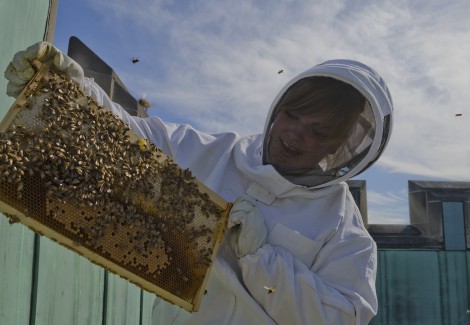
Reichlin described the importance of bees to our planet, a timely warning given the current threats to the bee species. Apart from being an educational experience, being a beekeeper at U of T can also be both sweet and therapeutic. Reichlin notes: “The pure honey we extract is so healthy… I even use it to heal my skin burns”.
U of T Culinary Arts Club
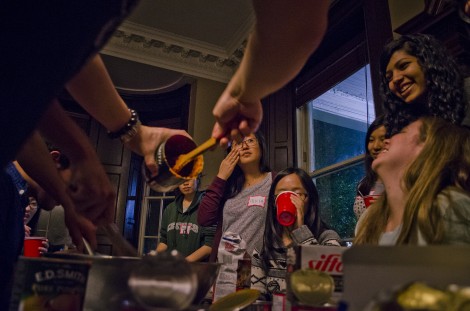
Shari Li, co-president of the Culinary Arts Club, says that in her club, “We make everything from scratch.” Members of the Culinary Arts Club have varying levels of cooking skill. Both students who don’t know how to cook and those with a passion for culinary arts are welcome to attend events, where different culinary skills are taught. Both a social and educational experience, these often include multiple course meals, testing out recipes, and enjoying the experience and the food together. The club focuses both on the art of food presentation and on various advanced culinary methods. A particularly special event, as Li describes, was the club’s venture to make, “rum baba, a French pastry with real rum.”

